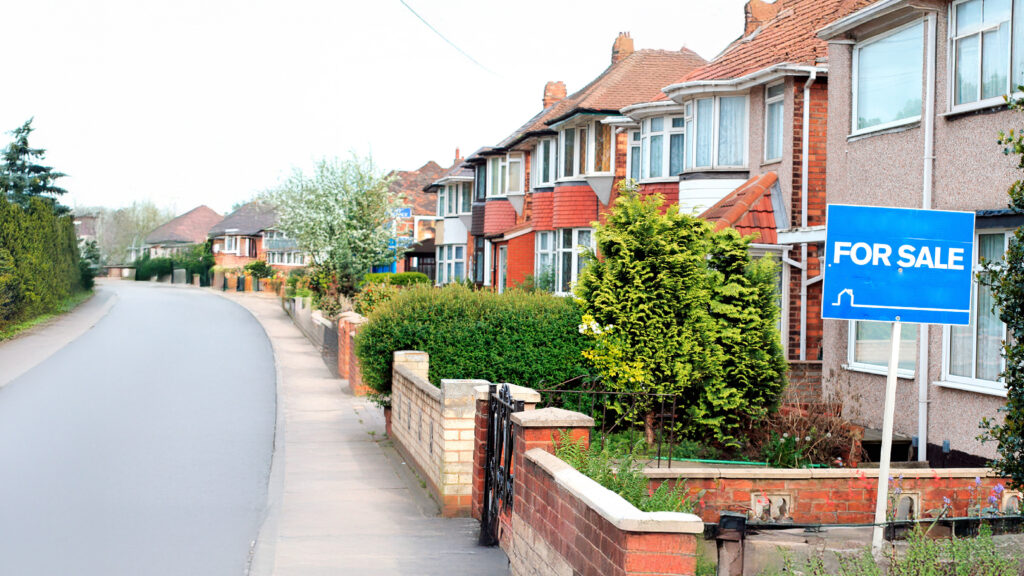
What Does Share of Freehold Mean?
When purchasing a flat in the UK, you may come across the term “share of freehold”. But what does share of freehold mean, exactly? And is it a better option than a standard leasehold?
Understanding the share of freehold meaning is essential for anyone buying a flat, as it offers a unique form of ownership that blends leasehold with freehold benefits. In this guide, we explain what is share of freehold, how it works, the pros and cons, and common share of freehold problems to be aware of.
What does share of freehold mean?
In a typical leasehold arrangement, you own your flat for a set period of time, such as 99 or 125 years, while the building and land are owned by someone else, known as the freeholder.
In contrast, share of freehold means you still have a lease on your flat, but you also own part of the freehold for the building itself. This is usually shared with other flat owners in the same block.
This arrangement provides more control over how the property is managed – and is thought to avoid many of the problems associated with leasehold ownership.
Two common structures for share of freehold ownership
1. Private Limited Company Structure
The most common setup is where a limited company holds the freehold, and each flat owner becomes a shareholder. The company itself is the legal owner, but decisions are made by the flat owners who serve as directors or shareholders.
2. Tenants in Common Structure
Alternatively, the freehold can be held directly in the names of the flat owners. This simpler setup doesn’t involve a company but relies heavily on mutual cooperation.
Advantages of share of freehold
1. Simple and cost-effective lease extensions
One of the biggest benefits of a share of freehold is the ability to extend leases easily and affordably. Leaseholders can agree to extend their leases to 999 years without having to negotiate with a third-party freeholder or pay large fees.
2. More control over maintenance and costs
When you own a share of freehold, you and the other freeholders manage the building yourselves. That means you have control over service charges, repairs, and maintenance decisions, which often results in better upkeep and lower operating costs.
3. Elimination of ground rent
Ground rent is typically eliminated under share of freehold ownership, as there’s no external landlord profiting from your lease.
4. Better dispute resolution
Because you and your neighbours are both leaseholders and freeholders, disputes are often easier to resolve internally without needing legal escalation.
Disadvantages of share of freehold
1. Responsibility for building management
Flat owners with a share of freehold are responsible for managing the building, including arranging insurance, handling maintenance, and making legal decisions. Not everyone is willing or able to take this on.
2. Shared financial commitments
You’ll need to contribute to major repairs or unexpected costs. For example, if the roof needs to be replaced, everyone bears the cost, and disagreements may arise.
3. Decision-making can be difficult
If you’re in a block with several flats, reaching an agreement can be tricky. Share of freehold problems often arise when owners can’t agree on budgets, improvements, or repairs.
4. Can complicate property sales and mortgages
Although share of freehold properties are appealing to many buyers, some mortgage lenders may have specific criteria. Likewise, unclear management structures can put off cautious buyers.
Lease extensions with share of freehold
Even though you technically own a portion of the freehold, you still have a lease on your flat, which has a term. Fortunately, extending a lease when you own a share of freehold is usually a simple and inexpensive process.
Flat owners can agree among themselves to grant longer leases, typically up to 999 years, increasing the property’s value and eliminating the risk of a “short lease,” which makes it difficult to sell.
Is share of freehold better than leasehold?
Choose share of freeholdif:
- You want more control over building management
- You’re happy to be involved in decisions
- You’d like to reduce costs like ground rent
Choose leasehold if:
- You prefer less responsibility
- You’d rather someone else manage the building
- You don’t want to deal with other flat owners
How to get a share of freehold
1. Buy a flat that already has a share of freehold
If you’re buying a flat that already includes a share of freehold, you automatically become a co-owner of the building’s freehold title. It’s critical to understand how the arrangement works in practice, whether through a company or direct ownership.
2. Collective enfranchisement
Already own a leasehold flat? You can team up with other leaseholders in your block to buy the freehold together. Known as collective enfranchisement, this legal process lets you take control from the existing freeholder. You’ll usually need at least 50% of leaseholders to agree to proceed.
Is share of freehold right for you?
Ask yourself these questions before committing:
- Do I want more say in how my building is managed?
- Am I willing to contribute to maintenance and legal decisions?
- Are the other freeholders cooperative and responsible?
- Will my mortgage lender accept a share of freehold?
If the answer is yes, a share of freehold could offer you long-term financial and practical benefits.
Need to sell a flat with a share of freehold?
Selling a flat can be more challenging than selling a house. Flats tend to attract first-time buyers and buy-to-let investors – but interest alone doesn’t guarantee a sale. At Sell House Fast, we offer an alternative to the uncertainty and waiting around: a quick and straightforward sale, with no fees.
Selling your flat to a cash house buyer like Sell House Fast means you avoid the hassle of viewings and price negotiations typical in the open market. We buy any flat directly with our own cash, guaranteeing a sale and avoiding common pitfalls like chain breaks or last-minute buyer withdrawals. Start the process today with a free cash offer.


